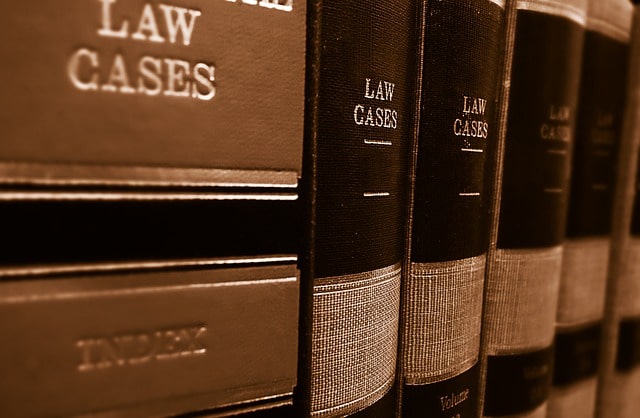Trusted criminal defense lawyer
Explore the key differences between negligence and gross negligence with Conoscienti and Ledbetter, guiding you through legal complexities with experience.
 Author: J. Blake Ledbetter, Partner, Conoscienti & Ledbetter
Author: J. Blake Ledbetter, Partner, Conoscienti & Ledbetter
Mr. Ledbetter specializes in civil litigation in metropolitan Atlanta, Georgia, and possesses vast experience in wrongful death lawsuits. Mr. Ledbetter was recognized as a SuperLawyers Rising Star in 2018 and 2019 in the area of Civil Litigation. Published on June 10, 2024.

Speak with experienced criminal defense lawyer today, for free.
Ignorance is not always bliss, mainly when it violates a responsibility of care. Think of navigating life’s journey with a lack of control and disregard for warnings—such negligence dramatically increases the chances of damage. What distinguishes a momentary lapse of attention from a willful disdain for safety? This is the crucial question that separates negligence from gross negligence—two legal concepts with profound implications for liability.
Negligence happens when someone doesn’t exercise the level of care that a reasonably prudent person would in similar situations, resulting in harm to another. However, where does simple carelessness end and outright disregard begin? Gross negligence is a severe form of negligence characterized by a conscious and voluntary failure to exercise reasonable precautions or care, likely to cause foreseeable significant injury or harm to people, property, or both.
Understanding these subtle yet critical differences is essential, especially in legal contexts where negligence and gross negligence have different consequences. At Conoscienti and Ledbetter, our grasp of these nuances informs the counsel we provide and shapes the outcomes of the cases we handle.
What Is Negligence?
In the legal realm, negligence refers to the failure to uphold the standard of care that a reasonably prudent person would exercise in comparable circumstances. It’s about the breach of a duty of care leading to damages or harm. This duty is the obligation to uphold a standard of behavior to safeguard others from risks of harm. Cases of simple negligence are common; they occur daily in different scenarios, such as car crashes due to lack of attention while driving or slips and falls on wet surfaces where warning signs have been ignored.
Elements of Negligence
For a negligence claim to hold water, four elements must be present:
- Duty of Care: An obligation to avoid causing harm to others.
- Breach: Violation of the standard of reasonable care.
- Causation: The direct link between the breach and the harm caused.
- Damages: The actual losses or injuries suffered due to the negligent act.
In a personal injury claim, Proving negligence is foundational for holding someone liable for the resultant harm. It is a multi-step process that necessitates demonstrating each negligence element’s presence for a successful outcome.
When confronting the distress of personal injury, standing alone against legal complexities can be daunting. This is where legal experience steps in. If you’re seeking to prove negligence and require detailed guidance, our legal understanding at Conoscienti and Ledbetter can assist in proving negligence in personal injury claims.

Speak with trusted criminal defense lawyer today, for free.
What Is Gross Negligence?
Sometimes, the line between an honest mistake and gross negligence is more comprehensive than one might imagine. Imagine momentarily that an act could be so careless that it borders on deliberate. Gross negligence is a situation that isn’t just a simple error or oversight. Instead, it shows a considerable deviation from the level of caution and care that any sensible person would typically display. According to §51-1-4 of the Georgia Code, gross negligence is the absence of even slight diligence—the primary care a person with common sense would exhibit in similar circumstances.
By its nature, this form of negligence suggests a behavior that is more than just careless; it is consciously indifferent. Such actions—or inactions—lead to increased liability, for they verge on a conscious violation of others’ safety. It could be argued that to be grossly negligent is to be willfully blind to the consequences of one’s actions.
Does the court take into account severe negligence when deliberating about punitive damages? Because severe negligence implies a higher level of negligence, punitive damages can be considered to penalize and prevent such careless behavior. At our law firm, we understand that establishing such an accusation requires demonstrating significant negligence. The amount of neglect must be clear and considerable.
Critical Differences Between Negligence and Gross Negligence
In legal terms, the distinction between negligence and gross negligence can drastically affect the results of a personal injury lawsuit. Negligence is the failure to exercise the level of care that a reasonably prudent person would in comparable situations. In contrast, gross negligence signifies a more severe disregard for the safety of others. This behavior is one step shy of deliberate harm.
Here are some critical differences between negligence and gross negligence:
- Legal Duty and Breach: For both, a legal duty exists. Negligence breaches this duty by not reaching the ordinary standard of care expected, whereas gross negligence does so through willful, wanton, or reckless conduct.
- Standard of Care: The key here is to understand the difference in the level of care expected. Negligence denotes mere carelessness, whereas gross negligence reflects a conscious and willful disregard for the necessity of reasonable care, likely resulting in foreseeable serious injury or harm.
- Examples: This includes driving slightly over the speed limit, which constitutes negligence, versus speeding in a school zone, which is considered gross negligence.
Understanding the Legal Implications: Negligence vs. Gross Negligence
When legal consequences are at stake, the nuances can mean different liabilities and damages.
- Liability: In negligence cases, the responsible party is often liable for compensatory damages. Gross negligence, on the other hand, could additionally subject the responsible party to punitive damages due to the reckless nature of the act.
- Higher Damages: Compensatory damages cover actual losses and damages, whereas punitive damages punish and deter future grossly negligent behavior. Courts often award higher damages for gross negligence. Data from various court cases reveal that gross negligence often leads to higher damage awards. Notable examples include Troutman v. B.C.B. Co., where punitive damages were granted due to clear evidence of conscious indifference or willful and wanton negligence. More so, clear and convincing evidence of a specific intent to cause harm is frequently a critical factor in awarding punitive damages, as demonstrated in Howard v. Alamo Corp. and MDC Blackshear, L.L.C. v. Littell.
Contributory and Comparative Negligence in Georgia
In Georgia, negligence cases are subject to specific laws addressing plaintiffs’ negligence and its impact on their recovery.
- Contributory and Comparative Negligence: These laws allow for a reduction in damages if plaintiffs are found partially responsible for their injuries. Under Georgia’s contributory and comparative negligence laws, it’s essential to ensure that a thorough evaluation of all parties’ conduct is considered in personal injury cases.
- Impact on Damages: How much a plaintiff can recover in damages may be reduced by their percentage of fault. Even in cases of gross negligence, a plaintiff’s potential recovery might be reduced if they’re found to have contributed to the harm they suffered.
Awareness of these differences is crucial for parties involved in legal disputes surrounding negligence and gross negligence, especially when understanding their rights and potential liabilities under the law.

Don’t delay. Schedule a risk-free consultation today.
How Conoscienti and Ledbetter Approach These Cases
When facing the complexities of personal injury law, we at Conoscienti and Ledbetter stand unwavering in our commitment to our clients. Our approach in ordinary negligence and gross negligence cases is meticulous and nuanced, recognizing the subtle yet crucial distinctions between these two liability standards.
Here are some critical aspects of our approach:
- Establishing Legal Duty & Duty of Care: We establish the legal duty owed to our clients. Our analysis involves discerning the specific duty of care that should have been exercised under the given circumstances.
- Differentiating Negligence vs.Gross Negligence: Our legal team is adept at differentiating between mere negligence—a failure to exercise reasonable care—and gross negligence, which indicates a willful disregard for the safety of others. We understand that gross negligence implies more extraordinary recklessness, often more significant damages.
- Evidence Gathering: We compile exhaustive evidence to substantiate the defendant’s breach of duty.
- Documentation: Documentation, expert testimony, and meticulous records form the backbone of our strategy.
- Claims & Compensation: We meticulously document all claims for damages to ensure total compensation for our clients, which encompasses economic and non-economic losses. Our objective is to secure restitution that fully addresses the scope of the harm suffered.
Throughout the trial process, we, as seasoned trial lawyers, leverage our extensive legal experience to artfully argue the existence and extent of the negligent actions in question. Our preparation is thorough, our representation aggressive, and our dedication to our clients’ cause is unwavering.
Take the Next Step towards Justice with Conoscienti and Ledbetter
In personal injury law, distinguishing between negligence and gross negligence is pivotal to understanding the gravity of an act and its consequences. Negligence refers to a failure to exercise the care a reasonable person would in a similar situation, potentially leading to an accident or injury. On the other hand, gross negligence signifies a reckless disregard for the safety and well-being of others, characterized by overtly reckless behavior that goes beyond simple oversight.
These distinctions have significant implications for the parties involved and the legal process. Cases involving gross negligence often result in more severe penalties and can influence the ruling on a settlement.
When dealing with legal issues related to these matters, it is prudent to seek assistance from an experienced personal injury attorney. Our cumulative experience helps us understand the nuances of these cases, and we acknowledge that each instance can drastically differ based on subtle yet critical legal interpretations. If you encounter such unfortunate circumstances, consulting with a legal team, such as the personal injury lawyers at Conoscienti and Ledbetter, becomes indispensable for an informed approach.
Decatur Office
(404) 373-5800
315 W Ponce de Leon Ave. Suite 400 Decatur, GA 30030







